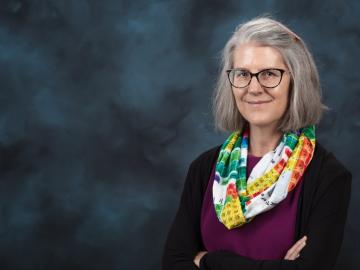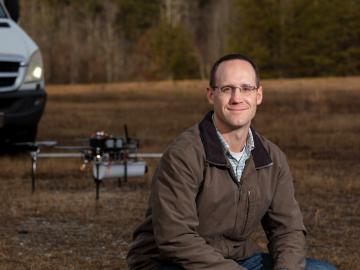
Filter News
Area of Research
- (-) National Security (24)
- (-) Supercomputing (51)
- Advanced Manufacturing (2)
- Biological Systems (1)
- Biology and Environment (27)
- Computational Biology (1)
- Computational Engineering (1)
- Computer Science (1)
- Energy Science (29)
- Fuel Cycle Science and Technology (1)
- Fusion and Fission (28)
- Fusion Energy (5)
- Isotope Development and Production (1)
- Isotopes (25)
- Materials (53)
- Materials for Computing (4)
- Neutron Science (26)
- Nuclear Science and Technology (25)
- Quantum information Science (1)
News Type
News Topics
- (-) Advanced Reactors (1)
- (-) Biomedical (12)
- (-) Cybersecurity (21)
- (-) Exascale Computing (23)
- (-) Isotopes (2)
- (-) Nuclear Energy (6)
- (-) Physics (9)
- (-) Space Exploration (2)
- 3-D Printing/Advanced Manufacturing (7)
- Artificial Intelligence (43)
- Big Data (19)
- Bioenergy (11)
- Biology (13)
- Biotechnology (3)
- Buildings (3)
- Chemical Sciences (4)
- Computer Science (85)
- Coronavirus (13)
- Energy Storage (6)
- Environment (21)
- Frontier (29)
- Fusion (1)
- Grid (8)
- High-Performance Computing (38)
- Machine Learning (22)
- Materials (13)
- Materials Science (15)
- Mathematics (2)
- Microscopy (7)
- Molten Salt (1)
- Nanotechnology (10)
- National Security (35)
- Neutron Science (15)
- Partnerships (5)
- Quantum Computing (16)
- Quantum Science (22)
- Security (14)
- Simulation (13)
- Software (1)
- Summit (36)
- Transportation (6)
Media Contacts

A world-leading researcher in solid electrolytes and sophisticated electron microscopy methods received Oak Ridge National Laboratory’s top science honor today for her work in developing new materials for batteries. The announcement was made during a livestreamed Director’s Awards event hosted by ORNL Director Thomas Zacharia.

A team of collaborators from ORNL, Google Inc., Snowflake Inc. and Ververica GmbH has tested a computing concept that could help speed up real-time processing of data that stream on mobile and other electronic devices.

An ORNL-led team comprising researchers from multiple DOE national laboratories is using artificial intelligence and computational screening techniques – in combination with experimental validation – to identify and design five promising drug therapy approaches to target the SARS-CoV-2 virus.

Deborah Frincke, one of the nation’s preeminent computer scientists and cybersecurity experts, serves as associate laboratory director of ORNL’s National Security Science Directorate. Credit: Carlos Jones/ORNL, U.S. Dept. of Energy

Since the 1930s, scientists have been using particle accelerators to gain insights into the structure of matter and the laws of physics that govern our world.

Six scientists at the Department of Energy’s Oak Ridge National Laboratory were named Battelle Distinguished Inventors, in recognition of obtaining 14 or more patents during their careers at the lab.

A multi-institutional team, led by a group of investigators at Oak Ridge National Laboratory, has been studying various SARS-CoV-2 protein targets, including the virus’s main protease. The feat has earned the team a finalist nomination for the Association of Computing Machinery, or ACM, Gordon Bell Special Prize for High Performance Computing-Based COVID-19 Research.

Horizon31, LLC has exclusively licensed a novel communication system that allows users to reliably operate unmanned vehicles such as drones from anywhere in the world using only an internet connection.

A team led by Dan Jacobson of Oak Ridge National Laboratory used the Summit supercomputer at ORNL to analyze genes from cells in the lung fluid of nine COVID-19 patients compared with 40 control patients.

From materials science and earth system modeling to quantum information science and cybersecurity, experts in many fields run simulations and conduct experiments to collect the abundance of data necessary for scientific progress.


